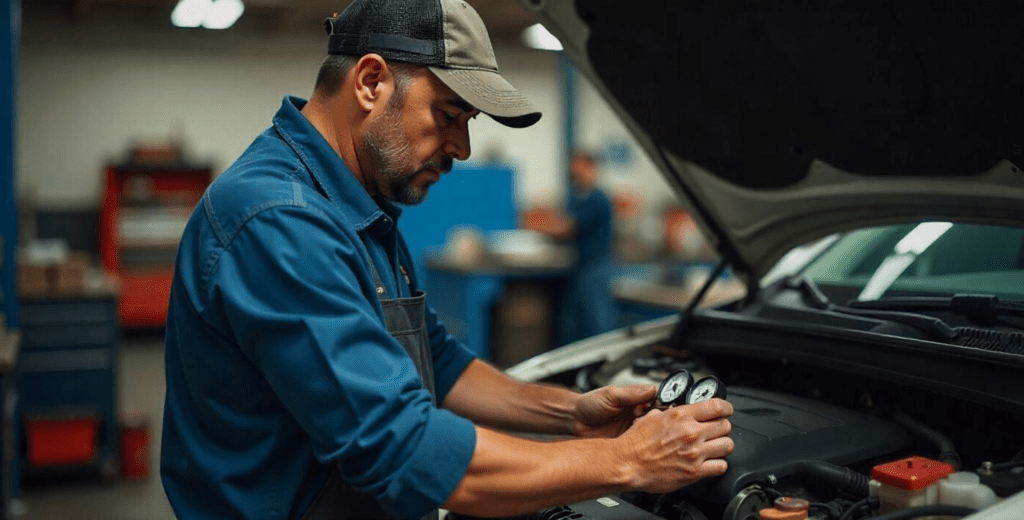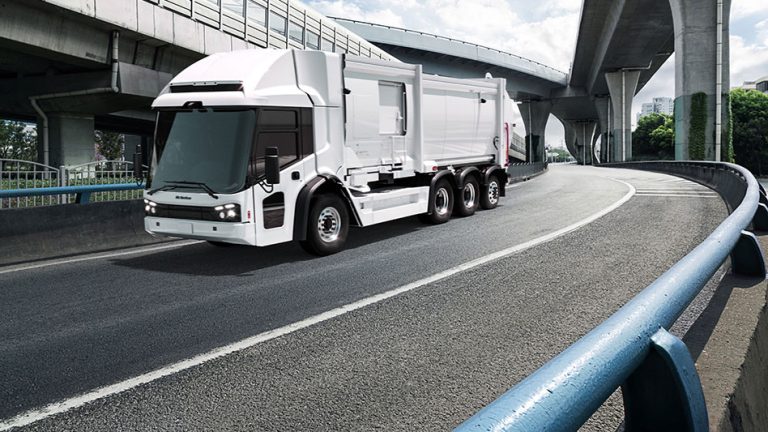Fuel line routing is essential for safe vehicle operation. Properly routed lines prevent leaks, abrasion, and sudden failures. That means fuel reaches the engine without interruption or risk. So technicians inspect every line carefully during scheduled car servicing. Then the vehicle operates reliably with steady fuel delivery at all times. Correct routing protects hoses, connectors, and surrounding engine components effectively. This careful positioning also reduces wear from vibration and heat exposure. Expert inspection ensures the car stays safe and functional under all conditions. Fuel line routing is a small step with long lasting benefits.
Checking Clearance from Heat Sources
Fuel lines near hot engine parts face risk of melting or cracking. That exposure can lead to leaks or fire hazards during driving. So the mechanic ensures lines are kept away from exhausts and manifolds safely. Then proper clamps and shields protect hoses from extreme heat effectively. Clearance also allows lines to expand and contract without stress over time. A safe distance prevents sudden failures that may endanger both vehicle and driver. Technicians adjust positioning whenever lines are too close to hot surfaces carefully. Proper clearance extends hose life and supports uninterrupted fuel flow consistently. Heat protection is crucial for safe routing and vehicle longevity.
Securing Proper Bends
Fuel lines must bend gently without kinking or stretching under pressure. That ensures fuel flows evenly to the engine during normal operation. So technicians follow manufacturer guidelines to position lines with safe curves. Then clamps or brackets hold the hose without applying excessive stress. Proper bends prevent rupture, blockages, or flow restriction over time. A carefully routed line supports consistent engine performance and fuel efficiency. Technicians inspect every bend for tension or sharp angles diligently. Drivers benefit from smooth operation and fewer mechanical problems during trips. Correct line routing preserves system integrity and ensures reliable performance daily. Choosing the Auto Repair in Aiken, SC based service is important here.
Checking Connection Points
Connectors, fittings, and joints are critical points in the fuel system. That is where leaks often occur if hoses are misaligned or stressed. So the expert ensures connections are seated properly and secure always. Then clamps or seals are tightened to maintain leak free operation reliably. Proper attention prevents accidental fuel release that may cause fire or engine damage. Technicians examine each connection for looseness, cracks, or deterioration carefully. The driver gains confidence knowing all joints are strong and intact. Secure connections improve both safety and overall vehicle functionality permanently. Connection inspection is essential to maintain uninterrupted fuel delivery consistently.
Conclusion
Inspection of fuel line routing ensures safety, reliability, and durability of vehicles. Technicians check clearance, abrasion points, bends, connections, and accessibility carefully. Then lines are secured and positioned for steady fuel delivery every trip. Proper routing prevents leaks, blockages, and system failures under normal driving. So vehicles operate safely with reduced risk of fire or breakdowns. Routine inspection protects both engine components and driver safety consistently. Expert attention ensures long lasting performance and uninterrupted fuel flow reliably. Correct routing is a small step with significant impact on vehicle life. Regular inspection keeps cars safe, efficient, and dependable on every road.






